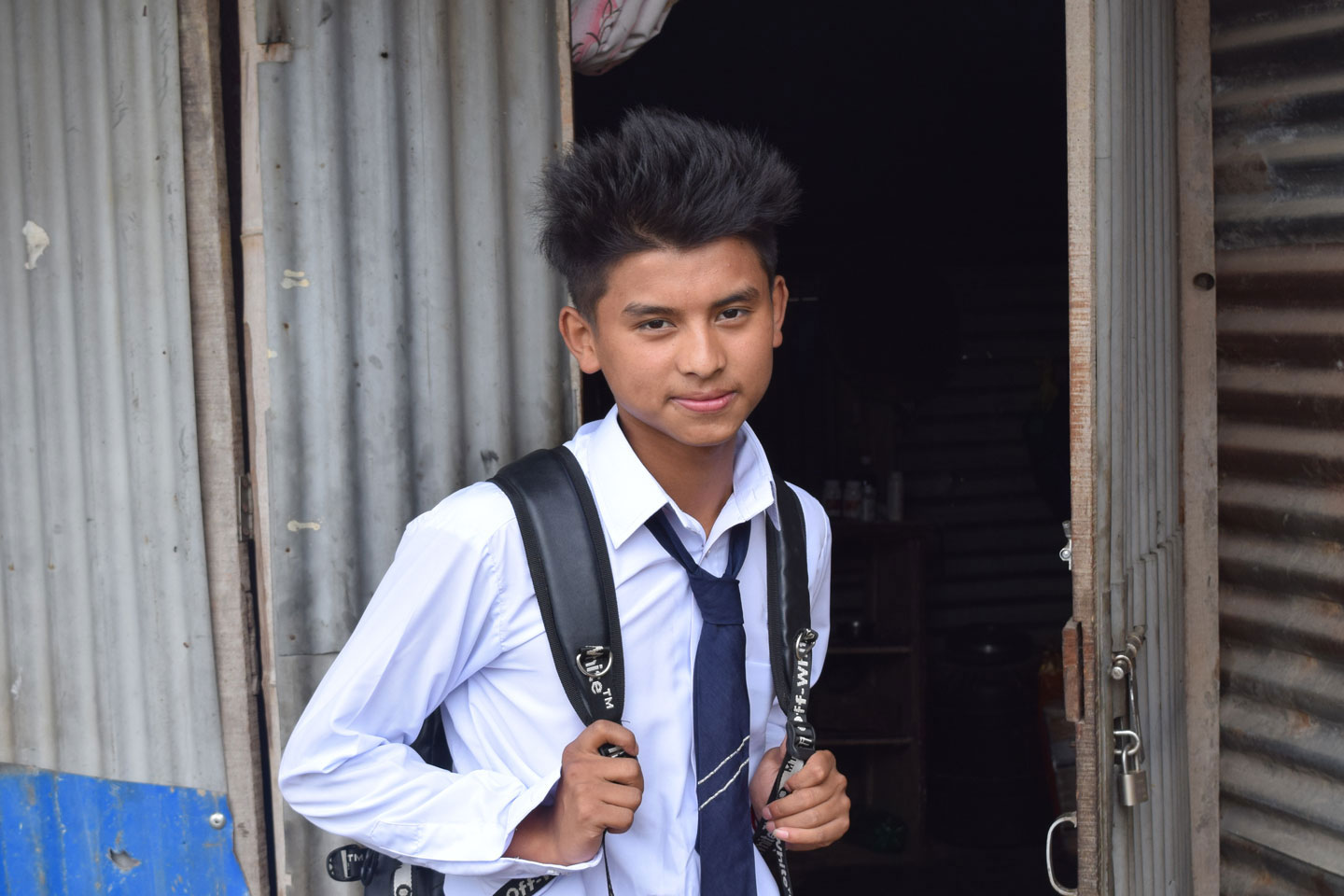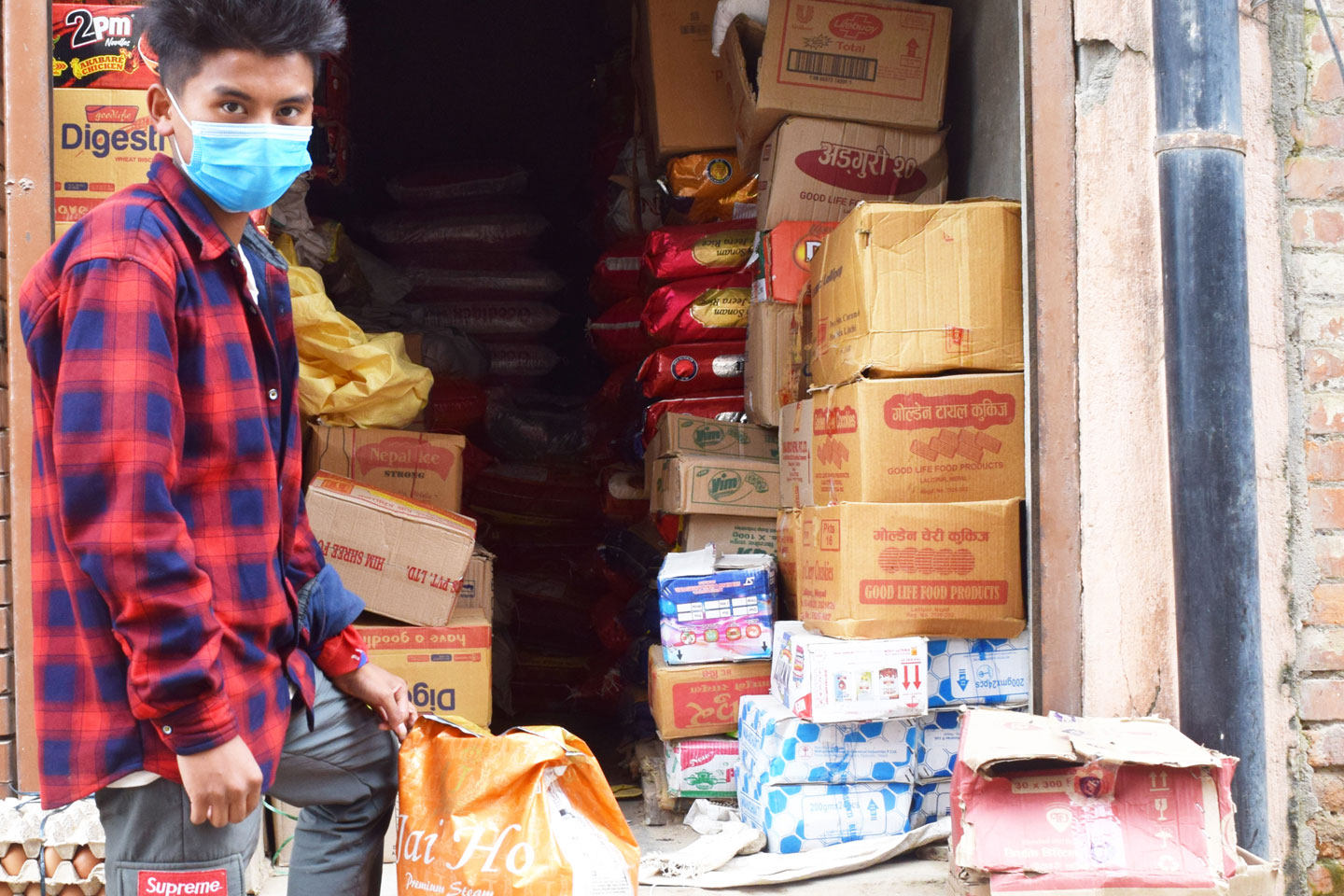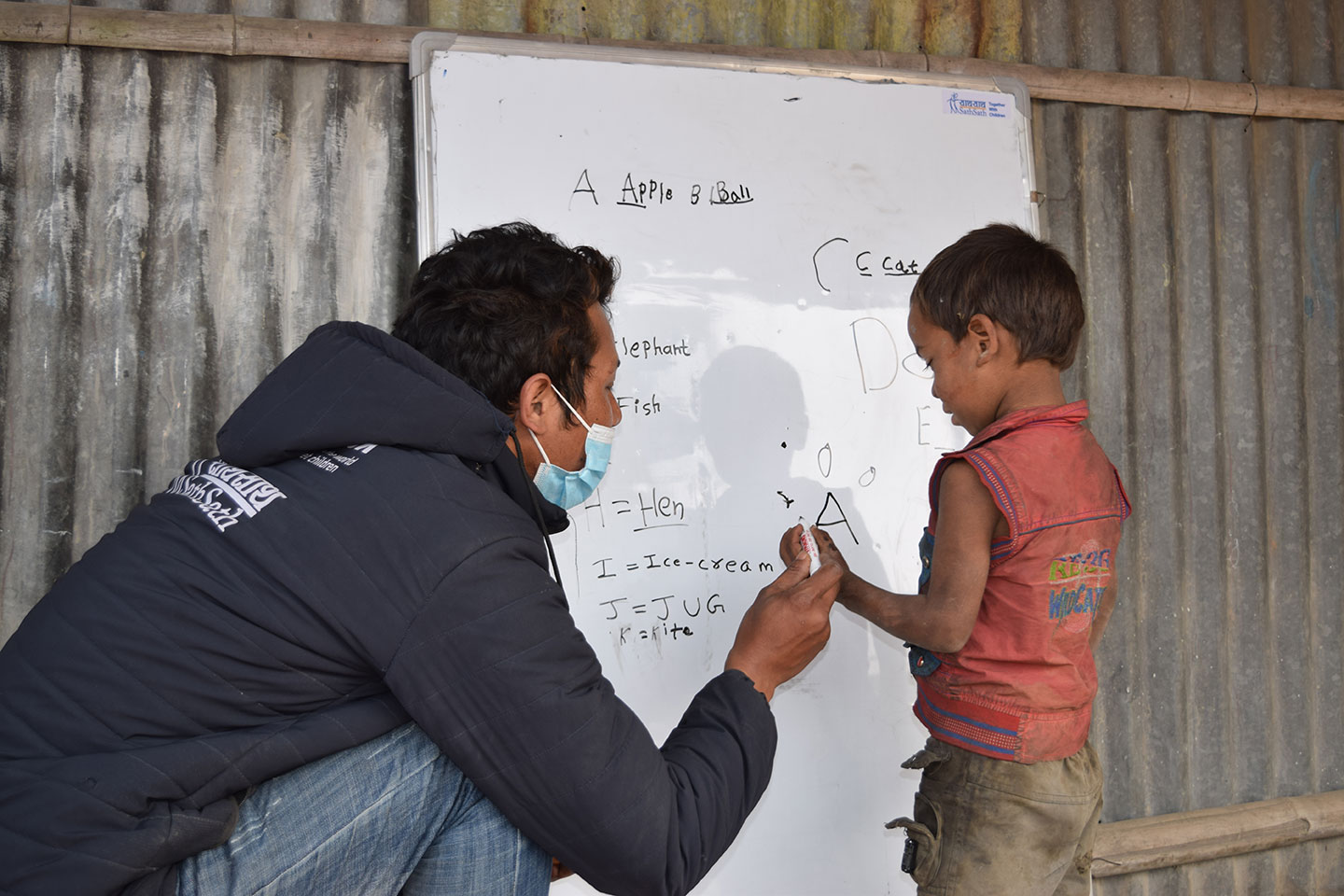
A recent report published by the UN in June 2021 highlighted that for the first time in twenty years, progress to end child labour has stalled. The COVlD-19 pandemic has increased pressure on children to enter the work force and over the past 18 months many families have lost their jobs and seen their incomes plummet.
At the same time, schools have been closed for prolonged periods intensifying expectations that children contribute financially, while making them even more vulnerable to the worst forms of exploitation.
In response to the unprecedented economic impact of the pandemic, many countries implemented emergency measures such as cash assistance for vulnerable families. However, in some places this support has been inadequate and in many, it has fallen well short of need. In Nepal, many street children were unable to receive the limited government distributed food rations during the latest lockdown because they could not prove their legal identity as they were not registered. Without official help, it is unsurprising that many more desperate children were forced to search for whatever work they could find.
Even before the pandemic, more than a third of 10-14-year-olds were working in Nepal, but since March 2020, many more children have gone out to work for the first time to help support their families.
The UN estimates that globally an additional 9 million children are at risk of being pushed into child labour by the end of 2022 because of the pandemic.
Other children have been forced to work longer hours or enter even more exploitative situations putting themselves at significant risk of harm. Once at work, many of these children will never return to school, with all the evidence showing that the longer children are out of school the less likely they are to return. UNICEF estimates that across the world 24 million children that have missed out on schooling during the pandemic will drop out for good.
These findings have undoubtedly been reflected in the day-to-day experiences of many of the street children we work with and many of our partners have expressed growing concern about the type of work children and young people are engaging with.
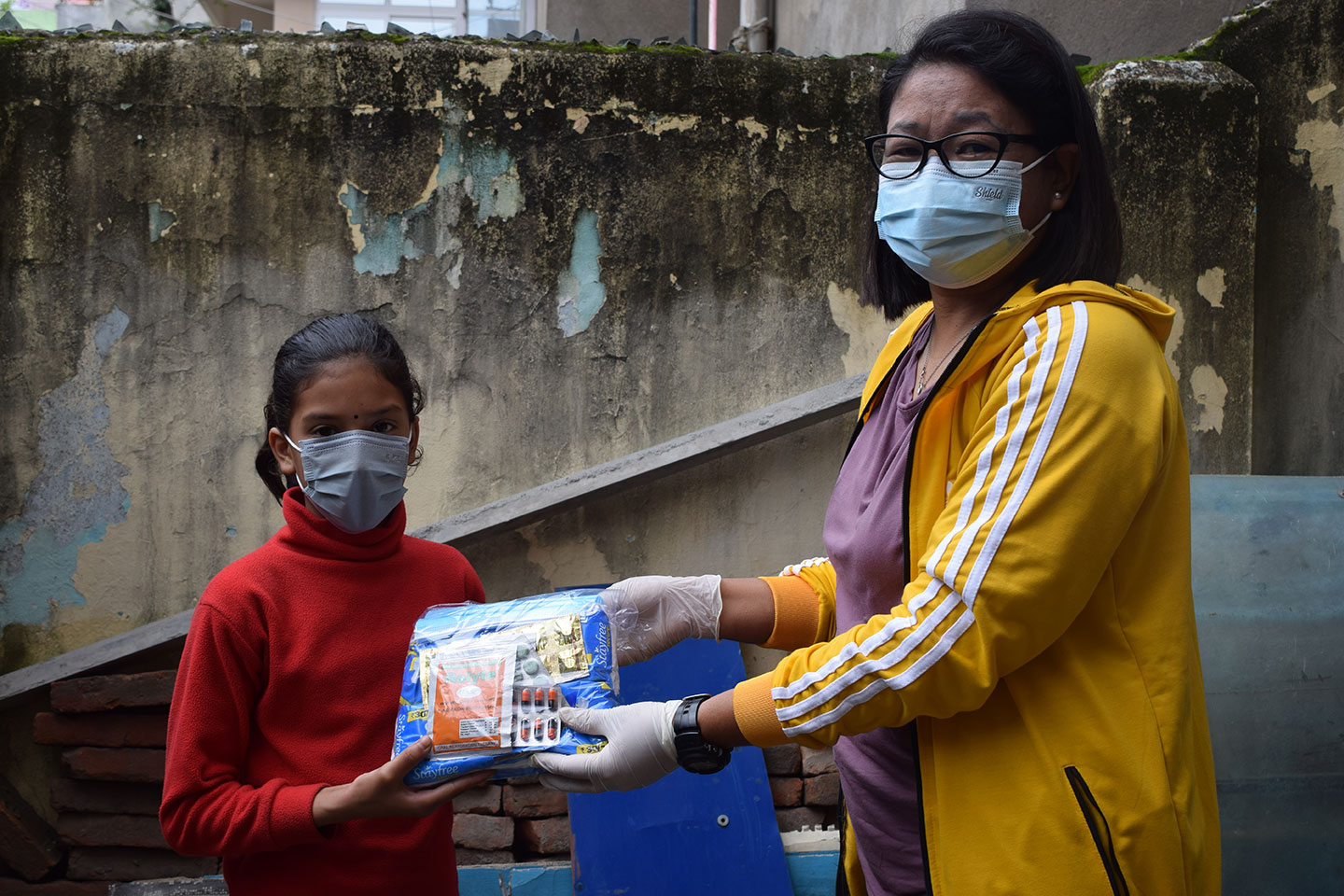
Emergency supplies
Searching for hope amongst the ashes
Earlier this year, Biso Bajracharya, CEO of our partner SathSath’s reported, “Today, we spent six hours outside the COVID-19 cremation site. We were not allowed to go onto the site but could observe from the side of the river and communicate from there with the young people working there. We noticed that all the cremators were street connected young people, along with some adults from the slum area. All together we saw 14 people working at the site - seven of the boys are currently connected with our projects.
While we were there, we asked the boys about the work and why they were doing it. They said as lockdown was imposed, they were out of work and for survival they came to work at the cremation site. They said they were paid Nrs.1000 per body (approx. £6) which they share among the group at the end of the week. They boys were given somewhere to sleep and food, but they are not allowed to go outside the cremation site.
The boys also then collect all the ashes from the funeral pyre in sacks and take it to another side of the river where they pour ashes in the flowing water to search for precious metals such as gold and silver.
The area where they are working was specially created to cremate those who have died from COVlD-19. The boys are given the required gloves, PPE, shoes and masks but we observed that they are not taking enough precautionary measures. These young people see it as opportunity - they only see the monetary benefits rather than the risk from contracting the virus. They are taking very high-risk jobs for the sake of money."
It is clear that the pandemic has impacted so many aspects of daily life and with fewer employment options available, young people are taking whatever work they can find. At this difficult time, SathSath’s frontline workers have been in constant contact with the boys, focusing on both their mental and physical well- being. They have done this through face-to-face meetings (when this has been permitted) and by phone. The team have also advocated on the boys’ behalf with the cremation management committee. This support has been vital as it ensured that they were paid for the work they had undertaken and that they were provided with the necessary protective clothes and equipment to carry out theirjobs. In addition, counselling support will also be made available by SathSath for the boys undertaking this work.
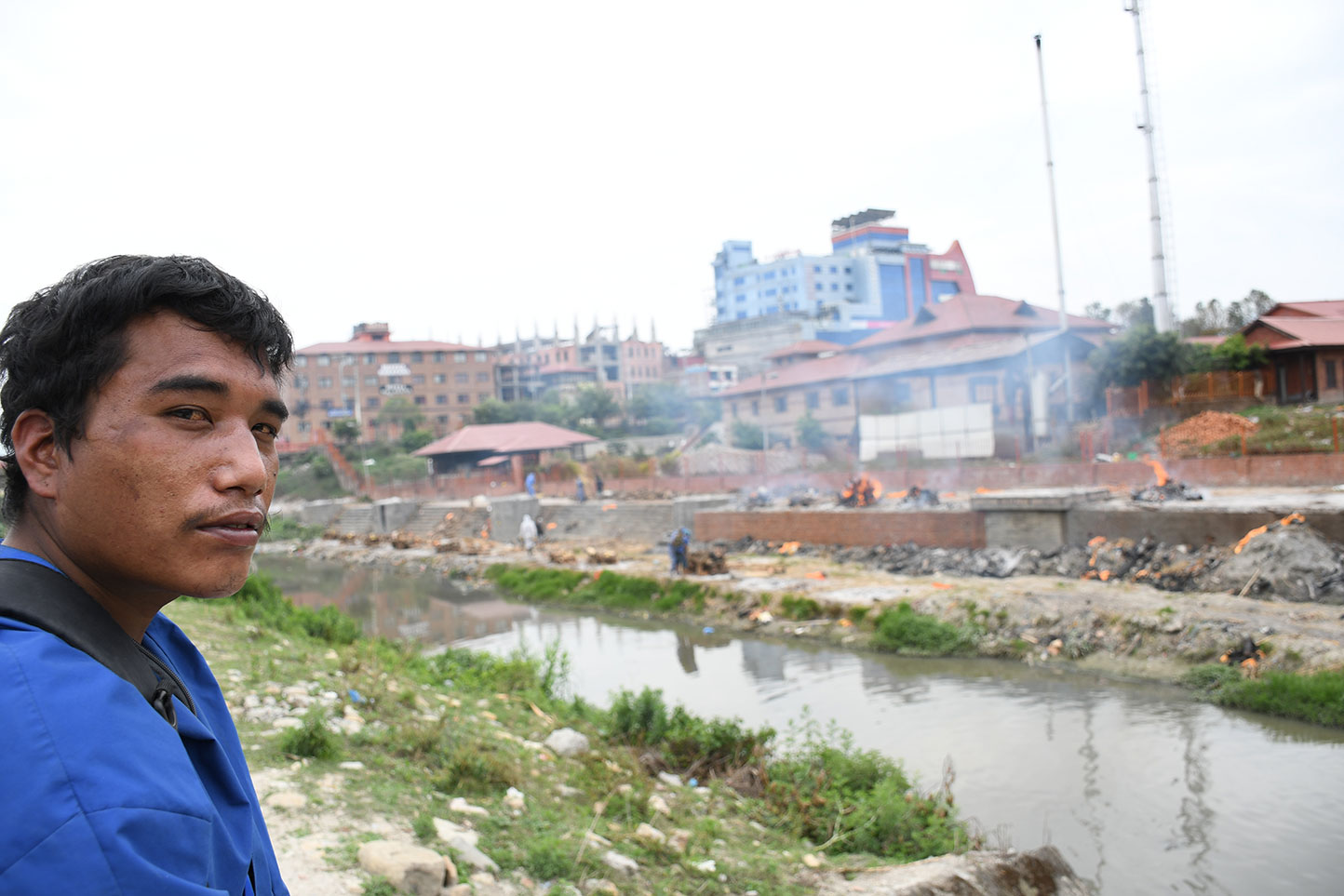
Bijay, a frontline worker for SathSath outside the COVID-19 cremation site.
